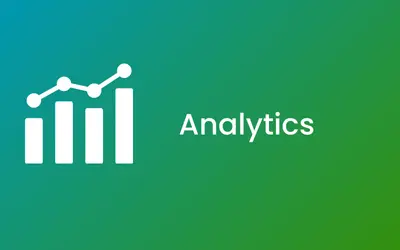Los Angeles, the entertainment capital of the world, is also home to many top-notch educational institutions that offer Analytics courses to help individuals meet the increasing demand for skilled data professionals. Analytics courses in Los Angeles provide students with a comprehensive understanding of data analysis, statistical techniques, data visualization, and data-driven decision making. By completing an analytics course, students will be equipped with the knowledge, skills, and tools needed to turn data into actionable insights that drive business growth. One of the top analytics courses offered in Los Angeles is the Master of Science in Analytics (MSA) program offered by the University of Southern California (USC). The program is designed to provide students with a strong foundation in data analytics, including statistical modeling, machine learning, data visualization, and predictive analytics. The MSA program also offers students opportunities to work on real-world projects with industry partners. Another popular analytics program in Los Angeles is the Data Science Bootcamp offered by Galvanize. The program is designed for individuals who want to jumpstart their career in data science. The 12-week bootcamp covers topics such as data wrangling, data visualization, machine learning, and deep learning. Students are also exposed to real-world projects and work on building their portfolio. UCLA Extension also offers a range of analytics courses in Los Angeles, ranging from Data Science for Business Professionals to Data Science Tools and Techniques. These courses provide students with the skills and knowledge needed to turn data into insights and help companies make data-driven decisions. The courses at UCLA Extension are designed for working professionals who want to upskill and advance their career in the field of data analytics. In addition to these institutions, there are also a growing number of online and hybrid programs that offer analytics courses in Los Angeles. These programs are designed to provide flexibility to students, allowing them to learn on their own time while still receiving the same high-quality education. Analytics is a rapidly growing field with a wide range of career opportunities available to individuals with the right skills and knowledge. According to Glassdoor, the average salary for a data analyst in Los Angeles is $81,000, while a data scientist can earn an average salary of $127,000. With the increasing demand for skilled data professionals, completing an analytics course in Los Angeles can be a great way to advance your career and increase your earning potential. In conclusion, Los Angeles is home to many top educational institutions that offer analytics courses designed to prepare students for a successful career in data analytics. Whether you are a working professional looking to upskill or someone looking to jumpstart their career in data science, there is an analytics course available to help you achieve your goals. With the increasing demand for skilled data professionals, completing an analytics course in Los Angeles could be the first step towards a rewarding career in the exciting field of data analytics.

₹60,000


Watch how students, freshers, and professionals transformed their careers with Skillfloor's Analytics Courses Reviews
Hurry Up!
Limited seats call us now for amazing discounts on Analytics Courses course



Skillfloor is a Government-Recognized Skill Development Institute under Startup India (DPIIT), offering career-focused certification programs in Analytics, Artificial Intelligence (AI), Data Science, Digital Marketing, SEO, and related domains. As one of India's largest training institutes, our courses emphasize hands-on projects, expert mentorship, and skills aligned with real hiring needs. With flexible learning options - online, offline, and hybrid, plus 100% scholarships for selective students, we make quality, job-ready education accessible.
Explore the program that aligns with your goals and take the next step with Skillfloor.



- Overview of data analysis and its importance in business
- Types of analytics: Descriptive, Predictive, Prescriptive
- Role of data in decision-making processes
- Introduction to common tools: Tableau, PowerBI, Excel
- Ethical considerations in data collection and analysis
- Data sources: Primary and secondary data
- Data collection methods (surveys, web scraping, databases)
- Data cleaning techniques (handling missing values, outliers)
- Data transformation and feature engineering
- Data storage concepts (structured vs. unstructured data)
- Descriptive statistics: Mean, median, mode
- Data visualization basics (histograms, scatter plots)
- Identifying data patterns and trends
- Outlier detection and handling methods
- Correlation and causation analysis
- Inferential statistics and probability theory
- Hypothesis testing (t-tests, chi-square tests, ANOVA)
- Measures of central tendency and variability
- Confidence intervals and margin of error
- Regression analysis: Linear and logistic regression
- Principles of effective data visualization
- Types of charts and their uses (bar, line, pie, heatmaps)
- Designing dashboards for different audiences
- Interactive visualization techniques
- Data storytelling for impactful presentations
- Time series analysis and forecasting methods
- Clustering and segmentation analysis
- Decision trees and classification techniques
- Introduction to machine learning in business analytics
- Model evaluation and selection
- Basics of SQL for data manipulation
- Creating databases and relationships
- Aggregating data with SQL (GROUP BY, JOIN)
- Data modeling for business intelligence (star and snowflake schemas)
- Case study: Building a business model with SQL
- Connecting and preparing data in Tableau
- Creating basic visualizations (charts, maps)
- Advanced Tableau functions (LOD calculations, table calculations)
- Building interactive dashboards and stories
- Publishing and sharing visualizations on Tableau Server/Online
- Introduction to PowerBI workspace and components
- Data import and transformation with Power Query
- Data modeling and relationships in PowerBI
- Creating and customizing visualizations
- Publishing and collaborating on PowerBI Service
- Selecting a real-world dataset for analysis
- Defining business questions and objectives
- Conducting data analysis and visualization
- Presenting findings in a comprehensive dashboard
- Peer review and feedback on project